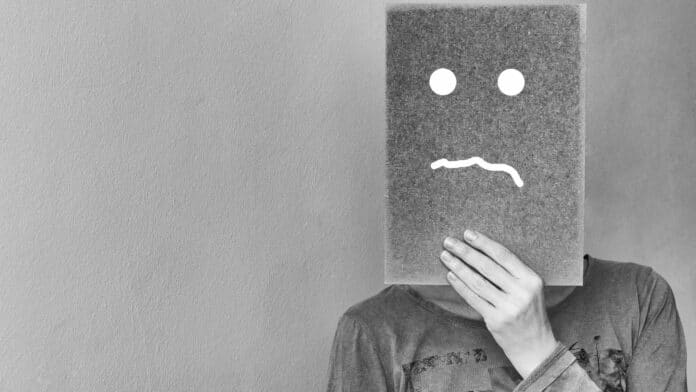Depressive realism, the idea that depression is associated with more accurate perceptions of personal control, is widely accepted. The theory holds that depressed individuals are less prone to optimistic bias and are thus more realistic in assessing their control or performance.
Since the theory was proposed 40 years ago, many innovations have been validated for testing cognitive accuracy, including improved bias measures in perceived control and performance. A new study by UC Berkeley combines several innovations in a well-powered, pre-registered analysis to identify depressive realism. The new study undermines the theory that depressed people are just more realistic.
Professor Don Moore, the Lorraine Tyson Mitchell Chair in Leadership and Communication at UC Berkeley’s Haas School of Business and co-author of the study, said, “It’s an idea that exerts enough appeal that lots of people seem to believe it, but the evidence isn’t there to sustain it. The good news is you don’t have to be depressed to understand how much control you have.”
Scientists set out to attempt to duplicate those results as part of a larger campaign to rebuild public confidence in scientific research, much of which is ingrained in the scientific community and wider culture. To support the most fundamental scientific ideas, scientists are revisiting bedrock studies: Can the study’s findings and methods be repeated?
Moore said, “Why test the theory of depressive realism in particular? Its decades-long infusion into science, culture, and even potential mental health treatment policy make it important. The original study, for instance, was cited more than 2,000 times in subsequent studies or research, according to Google Scholar.”
“At the top of the list of reasons why we ought to revisit this particular article is its widespread acceptance in both the scholarly and popular literature. That means a lot of people are building theories or policies premised on this effect being true. If it’s not, it’s essential to establish that.”
Using a questionnaire, the authors conducted their study on two different groups of individuals. The first group of 248 people was selected from Amazon Mechanical Turk. This online platform offers paid survey-takers and study subjects from various backgrounds, in this case, all of whom were above 18. 134 college students in the second group took part in exchange for college credit.
Advanced measurements were used for the study: for example, a mechanism used to measure bias was utilized. Scientists then experimentally varied the number of control participants.
Participants engaged in a task comparable to that from the 1979 study. In 40 rounds, each chose whether to press a button, after which a lightbulb or a black box appeared. Each was instructed to determine if pressing the button (or not pressing it) affected whether the light turned on. Each person described their level of control over the morning after the rounds.
The college students and online participants groups were divided into three experimental groups. Throughout the 40 rounds, each condition encountered various button and light interactions. The first two situations gave participants no actual influence over the light’s presence, although they did get to see it illuminate one-quarter or three-quarters of the time. By viewing the light three-quarters of the time after pressing the button, participants in the third condition had some control.
Scientists were unable to replicate the original study’s results. People in the online group with a higher level of depression overestimated their control—a direct contradiction to the original research. The researchers note that that finding may be driven by anxiety rather than depression, an observation Moore says merits further study.
Moore said, “The results undermined his belief in depressive realism.”
“The study does not suggest that there are benefits to being depressed, so no one should seek depression as a cure for their cognitive biases. Imagine, for example, a manager hiring someone depressed because they believe—based on the original study—that the person is less likely to be overconfident and will have better judgment. That would be a mistake.”
“While depression may not improve judgment, the issue of how to accurately gauge our level of control in various situations has broader implications throughout life.”
“We live with a great deal of uncertainty about how much control we have—over our careers, health, body weight, friendships, or happiness. What actions can we take that matter? If we want to make good choices in life, it’s very helpful to know what we control and don’t.”
Journal Reference:
- Amelia S. Dev et al. Sadder ≠ Wiser: Depressive Realism Is Not Robust to Replication. Collabra: Psychology. DOI: 10.1525/collabra.38529
